
P. I. Filimonov (real name Roman Fokin; born on 4 March 1975) is a Russian-Estonian writer who lives in Estonia. [1]

P. I. Filimonov (real name Roman Fokin; born on 4 March 1975) is a Russian-Estonian writer who lives in Estonia. [1]
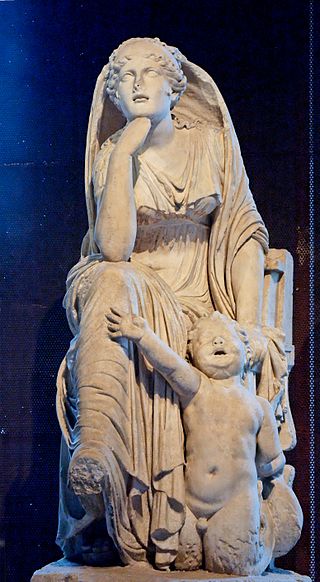
Thetis is a figure from Greek mythology with varying mythological roles. She mainly appears as a sea nymph, a goddess of water, and one of the 50 Nereids, daughters of the ancient sea god Nereus.

Anton Hansen, better known by his pseudonym A. H. Tammsaare and its variants, was an Estonian writer whose pentalogy Truth and Justice is considered one of the major works of Estonian literature and "The Estonian Novel".
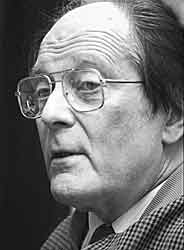
Jaan Kross was an Estonian writer. He won the 1995 International Nonino Prize in Italy.
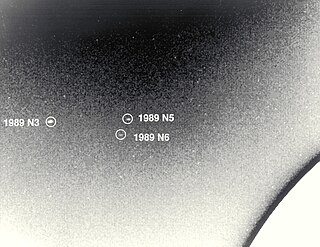
Thalassa, also known as Neptune IV, is the second-innermost satellite of Neptune. Thalassa was named after sea goddess Thalassa, a daughter of Aether and Hemera from Greek mythology. "Thalassa" is also the Greek word for "sea".
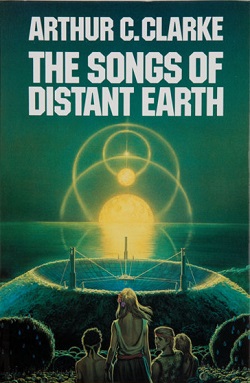
The Songs of Distant Earth is a 1986 science fiction novel by British writer Arthur C. Clarke, based upon his 1958 short story of the same title. Of all of his novels, Clarke stated that this was his favourite. Prior to the publishing of the novel, Clarke also wrote a short step outline with the same title, published in Omni magazine and anthologised in The Sentinel in 1983.
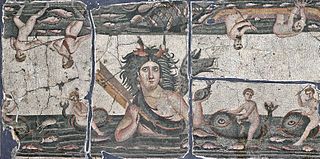
Thalassa was the general word for 'sea' and for its divine female personification in Greek mythology. The word may have been of Pre-Greek origin and connected to the name of the Mesopotamian primordial sea goddess Tiamat.

Thálatta! Thálatta! or Thálassa! Thálassa! was the cry of joy when the roaming Ten Thousand Greeks saw Euxeinos Pontos from Mount Theches (Θήχης) near Trebizond, after participating in Cyrus the Younger's failed march against the Persian Empire in the year 401 BC. The mountain was only a five-day march away from the friendly coastal city Trapezus. The story is told by Xenophon in his Anabasis. The date of the incident itself is believed to be in the early months of 400 BC.
Karl Ristikivi was an Estonian writer. He is among the best Estonian writers for his historical novels.

Oskar Luts was an Estonian writer and playwright.

Estonian literature is literature written in the Estonian language Estonia leads the world in book ownership, on average Estonians own 218 books per house, and 35% own 350 books or more.
Mare Kandre was a Swedish writer of Estonian descent. She was born, in Söderala, a small place in mid-Sweden and grew up in Gothenburg and Stockholm. Between 1967 and 1969, she lived with her family in British Columbia, Canada, a period which made a very deep impression on her and later in life influenced her writing. She died of an unintentional prescription drug overdose, aged 42.

Vahur Afanasjev was an Estonian novelist, poet, musician and film director best known for his novel Serafima and Bogdan a story following the lives in a village of Russian Orthodox Old Believers on the shore of the lake Peipus from the end of the World War II to the nineties. The novel won the 2017 Estonian Writers' Union's Novel Competition.
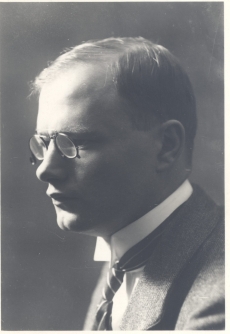
August Gailit was an Estonian writer.

Thalatta is a Thames sailing barge, built in Harwich, Essex, in 1906 and rebuilt in St Osyth in 2012. She is 90 feet (27 m) long and 26 feet (7.9 m) across the widest part of the deck. Like all Thames barges, she is flat-bottomed and has leeboards instead of a keel. She spent some of her life ketch-rigged and some of it spritsail-rigged. She is now permanently spritsail rigged, and has a mainmast and topmast that, together, are about 90 feet (27 m) high, and a mizzen mast. Thalatta has had two periods with an auxiliary engine and two without. She carried cargo for sixty years and was then converted for use as a sail training ship in 1966. She was completely rebuilt between 2006 and 2012 at St Osyth with assistance from lottery funds.

Mait Metsanurk was an Estonian writer who led the neo-realist school of Estonian literature.
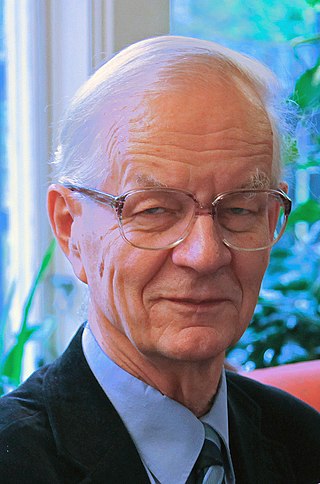
Enn Nõu is an Estonian writer.
Sass Henno is an Estonian writer.
Vetepere is a village in Järva Parish, Järva County in northern-central Estonia. As of the 2011 census, the settlement's population was 27. With a comparatively large area, Vetepere comprises several bogs including Kakerdaja, Kautla, Kodru and Laeksaare bogs. Vetepere is passed by the Jägala, Ambla and Tarvasjõgi rivers.
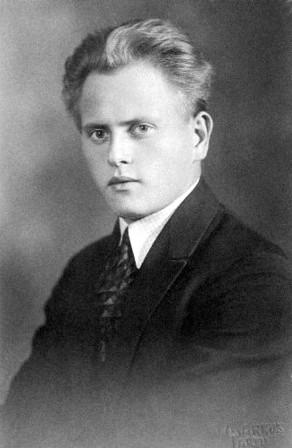
August Jakobson was an Estonian writer and politician. He was one of the few Estonian playwright among his contemporaries whose plays were untouched by Soviet censorship and reached other Soviet states. He has been described as the leading Stalinist in Soviet Estonian drama. In the 1960s his work was described as "ideologically militant".

Kätlin Kaldmaa is an Estonian freelance writer, poet, translator and literary critic. Since 2010, Kaldmaa is the president of the Estonian PEN. In 2016 she was elected Secretary of the PEN International.